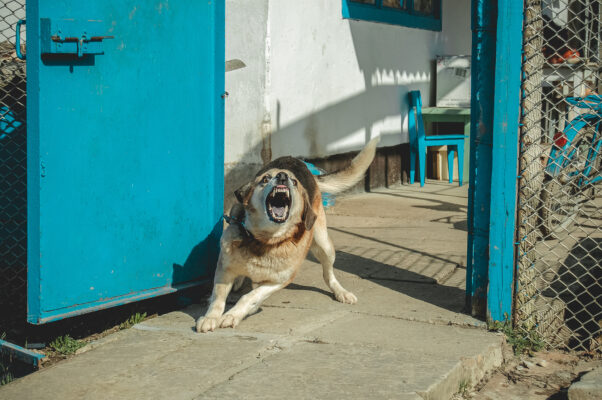In the serene landscapes of Karnes City, Texas, where rural charm meets modern convenience, the idyllic surroundings can sometimes conceal unforeseen risks. One such risk, though often overlooked, is the potential for dog bite incidents. While dogs are beloved companions to many, they can also pose a significant liability when their behavior leads to injuries. Navigating the legal landscape of dog bite cases in Karnes City requires a comprehensive understanding of the relevant laws and regulations. If you or a loved one has experienced a dog bite incident, it’s essential to understand who may be held responsible and the requirements involved.
Liability in Dog Bite Cases: An Overview
In the context of dog bite cases, liability refers to the legal responsibility of an individual, typically the dog’s owner, for injuries caused by their dog. Texas law recognizes two primary theories of liability: the “one bite” rule and the “negligence” theory.
The “one bite” rule suggests that a dog owner is liable for injuries caused by their dog if they are aware of the dog’s aggressive tendencies or previous violent behavior. Essentially, this rule implies that the owner is granted a “free pass” for the first incident involving their dog. However, if there is evidence that the owner had prior knowledge of their dog’s aggressive behavior, they may be held liable for the victim’s injuries.
On the other hand, the “negligence” theory holds the owner responsible if they fail to exercise reasonable care to prevent their dog from causing harm to others. This theory doesn’t require evidence of the dog’s past behavior; instead, it focuses on the owner’s actions leading up to the incident. Negligence could include actions like allowing the dog to roam freely without proper restraint, failing to properly train the dog, or ignoring signs of aggression.
Karnes City, Texas Dog Bite Regulations
When it comes to dog bite cases in Karnes City, specific regulations come into play. Under Texas law, the owner of a dog may be held strictly liable if the dog bites someone and the victim was lawfully on the premises where the bite occurred. This means that the victim doesn’t need to prove the owner’s knowledge of the dog’s aggressive tendencies or prior incidents. The mere fact that the victim was legally present where the bite occurred can be enough to establish liability.
Additionally, the Texas Health and Safety Code (Chapter 822) outlines certain requirements for dogs deemed “dangerous” or “potentially dangerous.” These requirements include registering the dog with local authorities, maintaining proper restraint when the dog is outdoors, and ensuring that the dog is spayed or neutered. Violations of these regulations can potentially strengthen a victim’s case in a dog bite incident.
Determining Responsibility: Factors to Consider
When assessing liability in a dog bite case, several factors come into play:
- Owner’s Knowledge: Was the owner aware of the dog’s aggressive behavior or tendencies? Did they have prior knowledge of the dog’s history of biting or attacking others?
- Negligence: Did the owner fail to take reasonable precautions to prevent the dog from causing harm? Were there signs of negligence, such as a lack of proper restraint or training?
- Provocation: Did the victim provoke the dog in any way? Provocation could potentially impact the liability determination.
- Location: Was the victim legally on the premises where the bite occurred? Texas law holds owners strictly liable if the victim was lawfully present.
- Dangerous Dog Designation: If the dog was previously designated as “dangerous” or “potentially dangerous” under Texas law, the owner’s responsibilities and potential liability increase.
Dog bite incidents are not only physically painful but can also have lasting emotional and psychological effects on the victims. Beyond the immediate physical injuries, victims often grapple with trauma, anxiety, and fear, particularly when it comes to interacting with dogs in the future. Understanding the holistic impact of these incidents sheds light on the importance of seeking justice and compensation.
Physical Consequences
The physical aftermath of a dog bite can vary widely, ranging from minor injuries to severe wounds that require medical intervention. Victims may experience:
- Puncture Wounds: Dog bites can lead to deep puncture wounds that are susceptible to infection.
- Tissue Damage: The force of a dog’s bite can cause damage to muscles, tendons, and ligaments, potentially requiring surgical repair.
- Scarring and Disfigurement: Even after wounds heal, victims may be left with scars that serve as a constant reminder of the incident.
- Infections: Dog bites carry the risk of infection, especially if prompt medical attention isn’t sought.
- Nerve Damage: Severe bites can damage nerves, leading to prolonged pain, numbness, or even loss of sensation.
Dog bite cases can be complex, involving intricate legal nuances and varying circumstances. If you or a loved one has experienced a dog bite incident in Karnes City, seeking professional legal guidance is essential. The experienced legal team at Rush & Gransee, L.C. specializes in personal injury cases, including dog bite incidents. Our knowledgeable attorneys understand the intricacies of Texas dog bite laws and will work diligently to ensure your rights are protected.
Don’t navigate the legal maze alone. Contact Rush & Gransee, L.C. today for a consultation to understand your options and pursue the compensation you deserve. Your journey to justice begins with a single step – reaching out to our dedicated legal team. We are committed to providing you with the personalized attention and effective representation you need during this challenging time. Remember, you don’t have to face the aftermath of a dog bite incident alone; Rush & Gransee, L.C. is here to help you every step of the way.